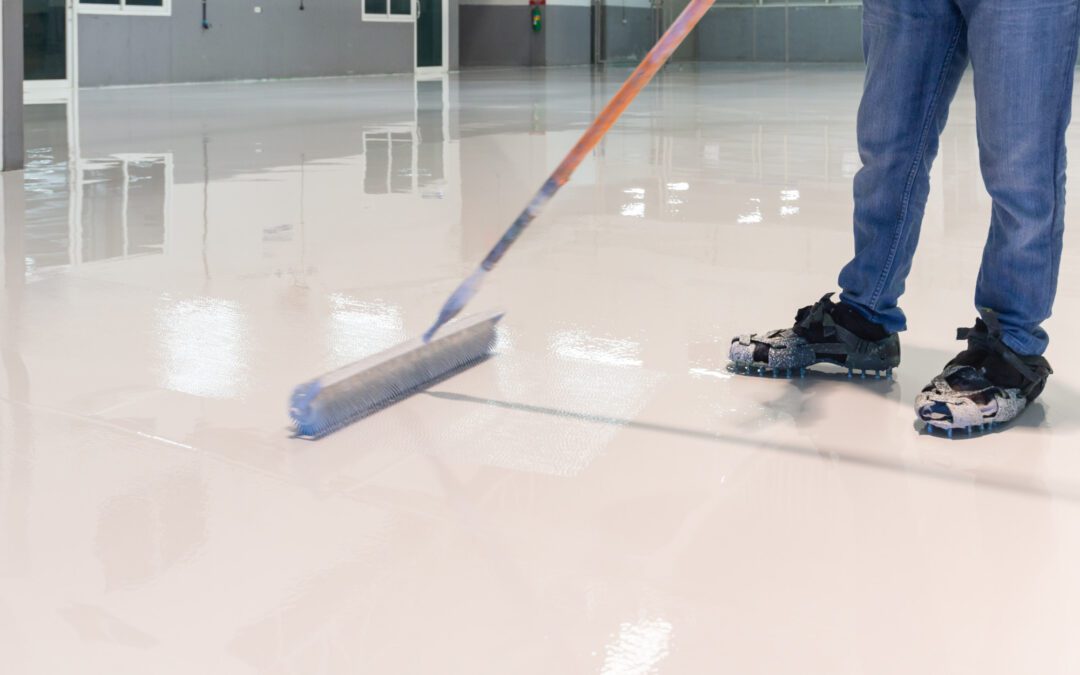When most people think of garage floor coatings, their minds immediately jump to epoxy resin. Though epoxy is one of the more well-known materials, it’s far from the only floor sealant to choose from. Polyurea concrete coating, for example, has a whole host of benefits that make it a strong competitor of epoxy.
What’s the difference between epoxy and polyurea coating for floors? Which is the best type of flooring for your garage, basement, or patio? For a closer look at the pros and cons that set polyurea and epoxy apart, keep reading.
Pros and Cons of Epoxy Floor Coating
Epoxy resin is a type of polyether that cures into an infusible solid. In simpler terms, it’s a liquid that turns into a type of hard plastic when mixed with another chemical or exposed to a specific type of energy.
Epoxy is a relatively inexpensive method of sealing floors. It’s more durable than concrete paints and latex sealants and comes in a variety of colors. It’s also possible to apply an epoxy sealant yourself, though it isn’t recommended unless you’re experienced.
One of the biggest drawbacks of epoxy resin is its sensitivity to UV light. If any sunlight shines onto an epoxy coated floor, like through windows or an open garage door, the affected areas will yellow and degrade much faster than areas of the floor that aren’t exposed to UV rays. This can leave you with patchy discoloration that’s impossible to clean off.
Epoxy is slow to cure, meaning it often traps air bubbles inside and creates a bumpy finish. It’s also prone to chipping, peeling, and cracking. It will last you up to 5-7 years with proper care and low to moderate indoor traffic, but it isn’t great for outdoor or partial outdoor spaces.
Pros and Cons of Polyurea Coating
Polyurea, not to be confused with polyurethane, is an elastomer. This means that it’s a flexible material related to rubber, unlike the hard plastic formed by epoxy resin. It’s also a liquid that cures into a solid when mixed with a specific chemical agent.
A polyurea floor coating is 20x stronger than epoxy, making it the most durable way to protect your floor. Because it cures so quickly, it isn’t prone to trapped air bubbles either.
The clear topcoat makes polyurea coatings resistant to stains, chips, dings, and scratches from dropped items or normal wear and tear. It isn’t sensitive to UV light, moisture, temperature, or chemical corrosion. It’s also anti-slip and comes in a full range of colors and finishes.
The main drawback of a polyurea coating is that it’s more expensive than epoxy and requires professional installation. Even so, because it lasts 15 years or more, it very well may save you money over epoxy in the long run.
Epoxy vs. Polyurea Garage Floor Coating: What’s the Better Option?
If your floor will ever be exposed to sunlight, have to put up with regular wear and tear, or could be exposed to moisture, epoxy won’t hold up for more than a couple of years. As such, when you’re in the market for a garage floor coating, it pays to invest in the unmatched durability of polyurea.
Garage Force of Mountainview is your resident Colorado expert in polyurea coating for garage floors, basements, industrial spaces, and even outdoor patios. Our team is dedicated to exemplary workmanship and unprecedented service, so you can be certain you’ll end up with a floor finish you love.
To get a free quote or set up your appointment, give us a call at (720) 226-6857 or click here to contact us online today.

